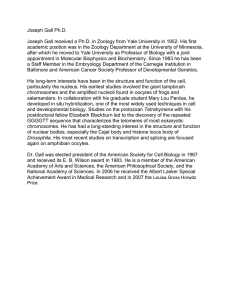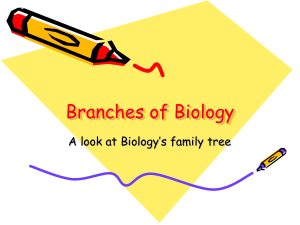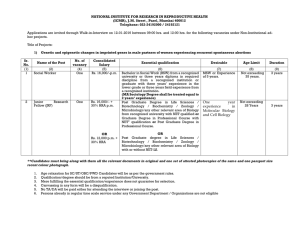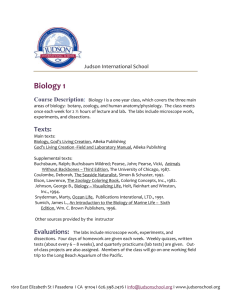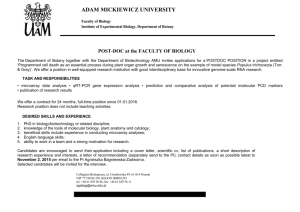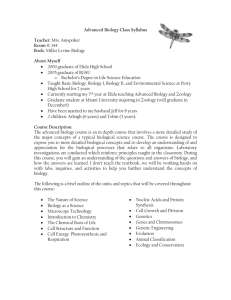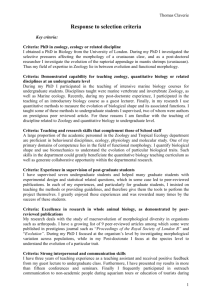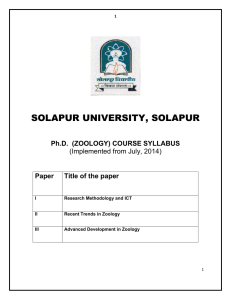Student Learning Outcomes - School of Biological Sciences
advertisement
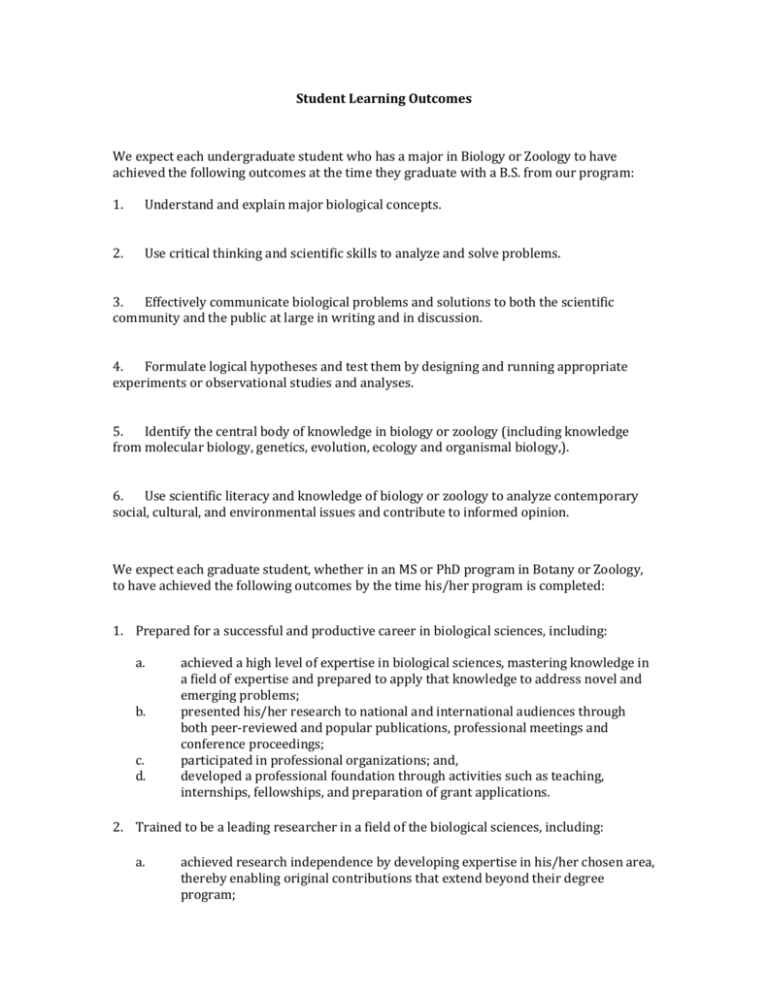
Student Learning Outcomes We expect each undergraduate student who has a major in Biology or Zoology to have achieved the following outcomes at the time they graduate with a B.S. from our program: 1. Understand and explain major biological concepts. 2. Use critical thinking and scientific skills to analyze and solve problems. 3. Effectively communicate biological problems and solutions to both the scientific community and the public at large in writing and in discussion. 4. Formulate logical hypotheses and test them by designing and running appropriate experiments or observational studies and analyses. 5. Identify the central body of knowledge in biology or zoology (including knowledge from molecular biology, genetics, evolution, ecology and organismal biology,). 6. Use scientific literacy and knowledge of biology or zoology to analyze contemporary social, cultural, and environmental issues and contribute to informed opinion. We expect each graduate student, whether in an MS or PhD program in Botany or Zoology, to have achieved the following outcomes by the time his/her program is completed: 1. Prepared for a successful and productive career in biological sciences, including: a. b. c. d. achieved a high level of expertise in biological sciences, mastering knowledge in a field of expertise and prepared to apply that knowledge to address novel and emerging problems; presented his/her research to national and international audiences through both peer-reviewed and popular publications, professional meetings and conference proceedings; participated in professional organizations; and, developed a professional foundation through activities such as teaching, internships, fellowships, and preparation of grant applications. 2. Trained to be a leading researcher in a field of the biological sciences, including: a. achieved research independence by developing expertise in his/her chosen area, thereby enabling original contributions that extend beyond their degree program; b. c. d. applied sound research methods and tools to problems in his/her area of study; communicated his/her research clearly and professionally in both written and oral forms; and developed comprehensive knowledge of previous and current research in his/her field of expertise and capable of demonstrating clearly such knowledge. 3. Trained to be a highly effective teacher in the biological sciences, including: a. b. c. d. obtained teaching training in coursework; encouraged to become engaging instructors in his/her chosen fields using modern pedagogical techniques; capable of incorporating emerging scientific discoveries in teaching, thereby keeping the classroom experience at the cutting-edge for students; and, trained to review and revise classroom materials to enhance the learning experience for students.

